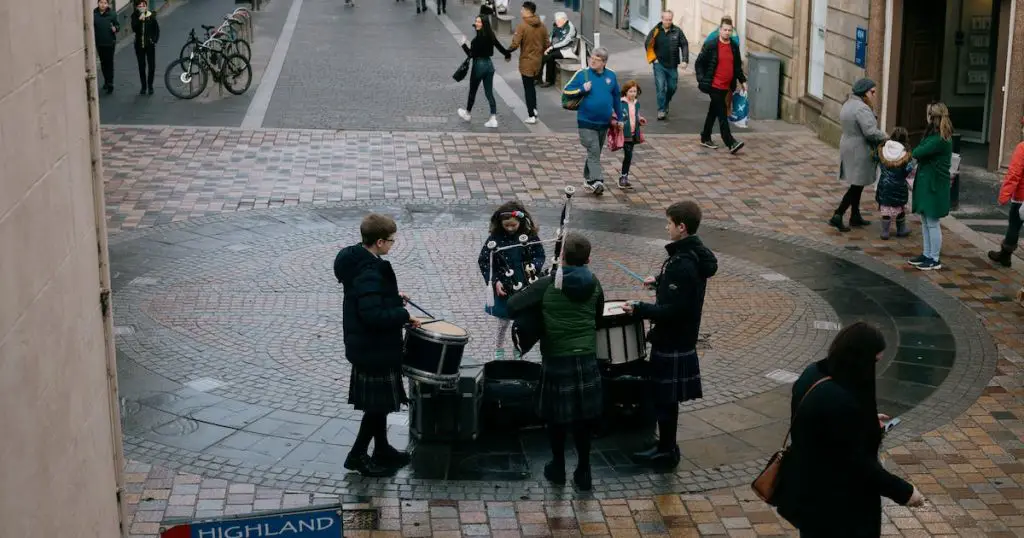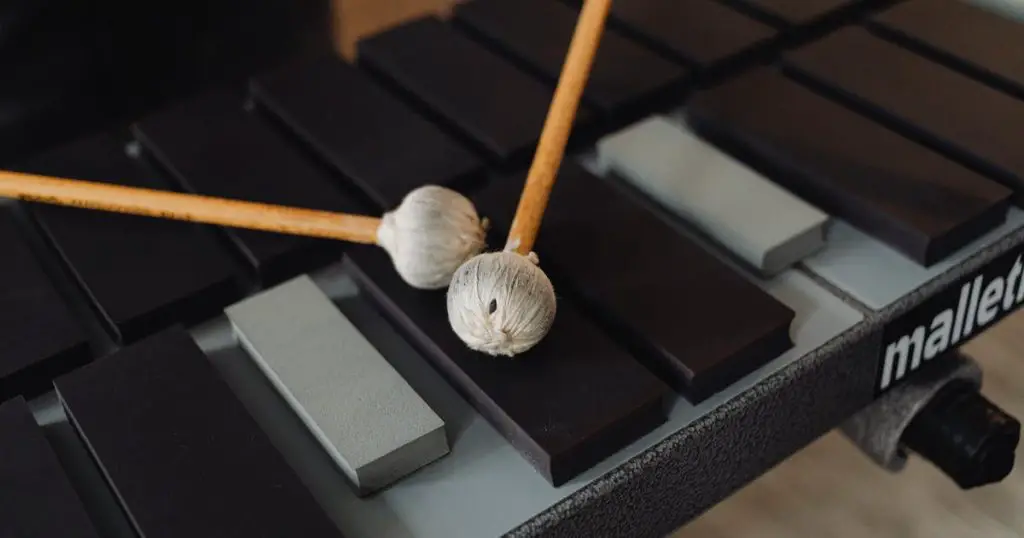As the sun sets over the high desert, the strum of a guitar echoes the rich history of Prescott, a city where folk music is woven into the very fabric of its identity. This genre, deeply rooted in the community’s soul, has chronicled the tales of indigenous peoples, frontier challenges, and societal changes through time-honored melodies.
Our journey into the history of folk music in Prescott reveals a symphony of stories, each note a footprint of the past, resonating through the present and into the future.
Through this exploration, we not only discover a musical tradition but also the heartbeat of Prescott itself—a melody that continues to play an integral role in its cultural tapestry.

The Roots of Prescott’s Folk Music
Indigenous cultures have long shaped the foundations of American folk music, particularly within regions like Prescott, which was once rich with the traditions of Native American tribes. These first songs were not merely for entertainment; they were integral to rituals, storytelling, and daily life, forming an indelible part of the region’s soundscape.
As settlers arrived, bringing with them the folk sounds of European ancestry, they merged with the native tones to create something distinct. This was the inception of Prescott’s unique folk flavor – a blend of Old World strings and indigenous motifs.
The frontier lifestyle contributed its own rugged verse to the evolving genre. Mining ballads echoed the aspirations and adversities of those digging deep into Arizona’s soil, while cattle driving songs rhythmically matched the clop of hooves across the expansive prairies.
Evolution Through Time
In the early 20th century, folk music began to capture the American experience, with Prescott’s growing community contributing to its preservation and change. Recording technology of the time brought local sounds to a broader audience, with each vinyl imprint preserving the rich cultural narratives of the city’s past.
The Great Depression and wartime eras were particularly reflective periods, with folk music serving as both solace and social commentary. It was during these times that Prescott’s folk scene began to mirror the national mood, encapsulating the struggles and resilience of its people.
The post-war era saw a folk revival that swept through the nation, and Prescott was no exception. The 1950s brought forth a movement that would rekindle the love for acoustic simplicity and lyrical storytelling. Folk clubs and festivals began to dot the city, becoming crucibles for both preservation and innovation.
By the time the late 20th century rolled in, folk music in Prescott had absorbed multiple influences, yet it held steadfast to its roots. The era was characterized by a blend of tradition with contemporary flair, a period where festivals and folk clubs played pivotal roles in keeping the scene vibrant.
The Places and People
Prescott’s historical bars and taverns have always been more than mere watering holes; they’ve been sanctuaries for the weary and breeding grounds for musical innovation. The Prescott Folklore Center stands out as a cultural bastion, fostering the growth and appreciation of local folk music.
The tapestry of Prescott’s folk heritage is incomplete without mentioning the artisans of melody who have spun stories into songs. From the early minstrels who laid the groundwork to the contemporary troubadours who continue to enchant, these individuals are the heartbeat of the city’s melodious legacy.
Community engagement has been the lifeblood of Prescott’s folk scene. The audience, a collective of locals and visitors alike, has shaped the evolution of the genre. Their participation and support reflect not only a love for music but also a profound connection to the city’s cultural identity.

Cultural Significance
Prescott’s folk music has always been a reflection of the times, offering a narrative that extends beyond mere entertainment. As social commentary, these songs have chronicled everything from local celebrations to national upheavals, providing a voice to the people’s collective conscience.
The preservation of Prescott’s heritage through folk music has been a concerted effort. Educational initiatives and archival projects work to ensure that the strains of yesterday continue to resonate with future generations.
Festivals and annual celebrations interweave folk music with local customs, highlighting its integral role in community life.
Challenges and Future Directions
Despite its storied past, Prescott’s folk music faces contemporary challenges. Commercialization and the digital age present both hurdles and opportunities for traditional forms of music. Yet, there’s a sense of optimism looking forward, with youth involvement and innovative approaches hinting at a dynamic future for Prescott’s folk tradition.
The following points underline the essence of the city’s folk music landscape:
- Preservation efforts are crucial to maintaining the authenticity of Prescott’s folk music.
- Community involvement remains a driving force behind the genre’s continued relevance.
- Innovation, particularly among younger artists, is key to the evolution of folk music in Prescott.

FAQs
Before concluding our musical odyssey, let’s address some common questions regarding the history of folk music in Prescott:
What defines Prescott folk music compared to other regions?
Prescott folk music is characterized by its unique blend of indigenous influences, historical themes from the frontier era, and the various cultural imprints left by settlers.
Who are some of the most influential Prescott folk artists?
While many artists have contributed to Prescott’s folk heritage, names like Travis Edmonson of the folk duo Bud & Travis, and figures such as Katie Lee, who was known for her music and activism, stand out. Contemporary artists also continue to shape the folk scene, though their identities evolve with the times.
How can one get involved with the Prescott folk music community?
Getting involved can be as simple as attending local folk music festivals, visiting venues known for live folk music, participating in folk music workshops, or joining folk music societies in Prescott.
What role does folk music play in Prescott’s cultural identity today?
Folk music remains a vital thread in the fabric of Prescott’s cultural identity, celebrating its history, shaping its present, and echoing its stories and values to future generations.
Conclusion: History of Folk Music in Prescott
In our exploration of Prescott’s folk music history, we’ve uncovered a rich narrative that not only entertains but also educates and unites.
From the indigenous melodies that predate written history to the heartfelt ballads of the old west, and onto the politically charged anthems of modern times, Prescott’s folk music is a chronicle of its people.
As this tradition continues to evolve, it promises to resonate with the echoes of the past while embracing the possibilities of the future, ensuring that the story of Prescott and its people continues to be told through the strings of guitars and the voices of its folk musicians for generations to come.



Leave a Comment
You must be logged in to post a comment.